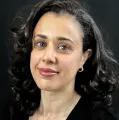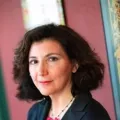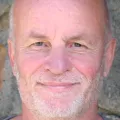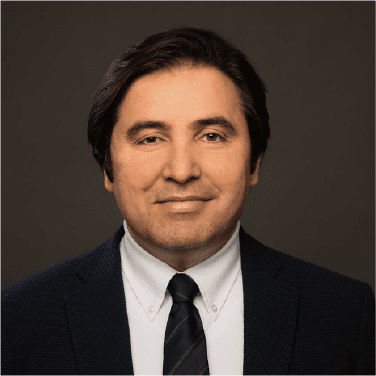France and Islam:
Identity, Politics, and Geopolitics
November 30, 2020
Summary
The Brookings Doha Center (BDC) hosted a webinar discussion on November 30, 2020 on France’s evolving policy on the public and political manifestations of Islam. The discussion included the role of upcoming elections, the precise definition of secularism, and religious freedoms in France more broadly. The panel consisted of a group of distinguished scholars and experts, including: François Burgat, senior research fellow at the French National Centre for Scientific Research; Jocelyne Cesari, visiting professor of religion, violence, and peacebuilding, at the Harvard Divinity School; and Rim-Sarah Alouane, researcher and Ph.D. candidate in Comparative Law at the University Toulouse-Capitole. Galip Dalay, nonresident fellow at the BDC, moderated the event.
François Burgat began the discussion by focusing on what he called the last layer of drivers intensifying the crisis in France — elections. Burgat highlighted that Emmanuel Macron came to power with the help of left and center group voters, but after three years of liberal policies, he has lost that support. Therefore, in the quest for re-election, Macron has had to connect with both the right and the extreme right voters whose main concern is preventing terrorism. This has made the president more radical in demonizing French Muslims and blaming this group for the country’s security threats. Burgat also highlighted the discussion of Islamophobia and its consequences. He stated that initially this discussion took place among certain sections of French society but has since been controlled by the state. Finally, he highlighted the fact that the rhetoric demonizing political Islam is not solely a French product and has been propagated in cooperation with autocratic regimes of the Middle East and North Africa (MENA) region. This is due to the fact that the main political streams expressing democratic demands in such societies are linked to political Islam.
Jocelyne Cesari continued by elaborating on the two principles of secularism. The first is to ensure that the state treats all religions equally, does not impede their practice, and at the same time is not dominated by religion. The second principle concerns the social legitimacy of religion in public spaces. In France, there is a long-standing history of suspicion of practice in public spaces, which dates back to the Wars of Religion between Catholics and Protestants. Therefore, for a religious group to be recognized, it must reserve worship and practice to the home or place of worship. Cesari also noted that part of the issue is that we live in an international environment where radical groups are co-opting the language of Islam to advance their own political aims. This, coupled with the trauma of the September 11 attacks, has prompted many European countries to restrict all religious activities. In this context, Muslims are the most targeted group because their mode of practice is highly visible. Finally, she highlighted that we are not paying close enough attention to the rise of a cultural war and specifically white young men who propagate Islamophobia and champion Christianity and populism. Such assert themselves to be a part of a Christian nation, even if they are secular, fighting against Islam.
Rim-Sarah Alouane continued the discussion by commenting on the French response to terrorist attacks. She stated that whenever an attack occurs France looks to modify the management of religion instead of focusing on the issues of radicalization and national security. Moreover, according to Alouane the country has given up on the rule of law to address security issues and that its actions are causing an erosion to civil liberties in general, not solely religious freedom. She also spoke on the law of freedom of expression in France. While there is a freedom of speech law there are none against blasphemy and courts decide on a case-by-case basis whether certain incidents of expression amount to hate speech. Yet, France has instrumentalized the principle of free speech to claim that Muslims are a group that must be tamed. In fact, French Muslims want the principle of secularism to be applied as well as the law of 1905, which declares that the state must remain religiously neutral to ensure freedom for all faiths. However, today the state is using both as tools to erase religion from public spaces entirely.
In the subsequent question and answer session, panelists spoke on the role of Anglo-Saxon media in this debate, French treatment of religious practice by non-Muslims, and the growing voice of French Muslims abroad. Firstly, Cesari spoke on the contention between Macron and English-speaking media. She stated that Anglo-Saxon citizens and academics do not understand France’s long-standing insecurity of religion that is visible and unique boundary between private and public spaces. Moreover, Cesari noted that the country’s colonial past has shaped its perception of Islam. Burgat contended that the state presents a double standard with respect to the visibility of religions, providing the example of a Jewish-French member of parliament who called on his supporters to vote for the sake of the Torah and received no backlash. He also reiterated the point that the Arab counter-revolution is taking advantage of European Islamophobia to quiet protesting voices at home. Finally, Alouane stated that new generations of French Muslims are educated and often speak English and so are able to share their experiences with Anglo-Saxon media. In this way, the French state no longer has a monopoly on narrating events on the ground.
Speakers

Rim-Sarah Alouane
Researcher and Ph.D. candidate in Comparative Law at the University Toulouse-Capitole

Jocelyne Cesari
Visiting professor of religion, violence, and peacebuilding, at the Harvard Divinity School

